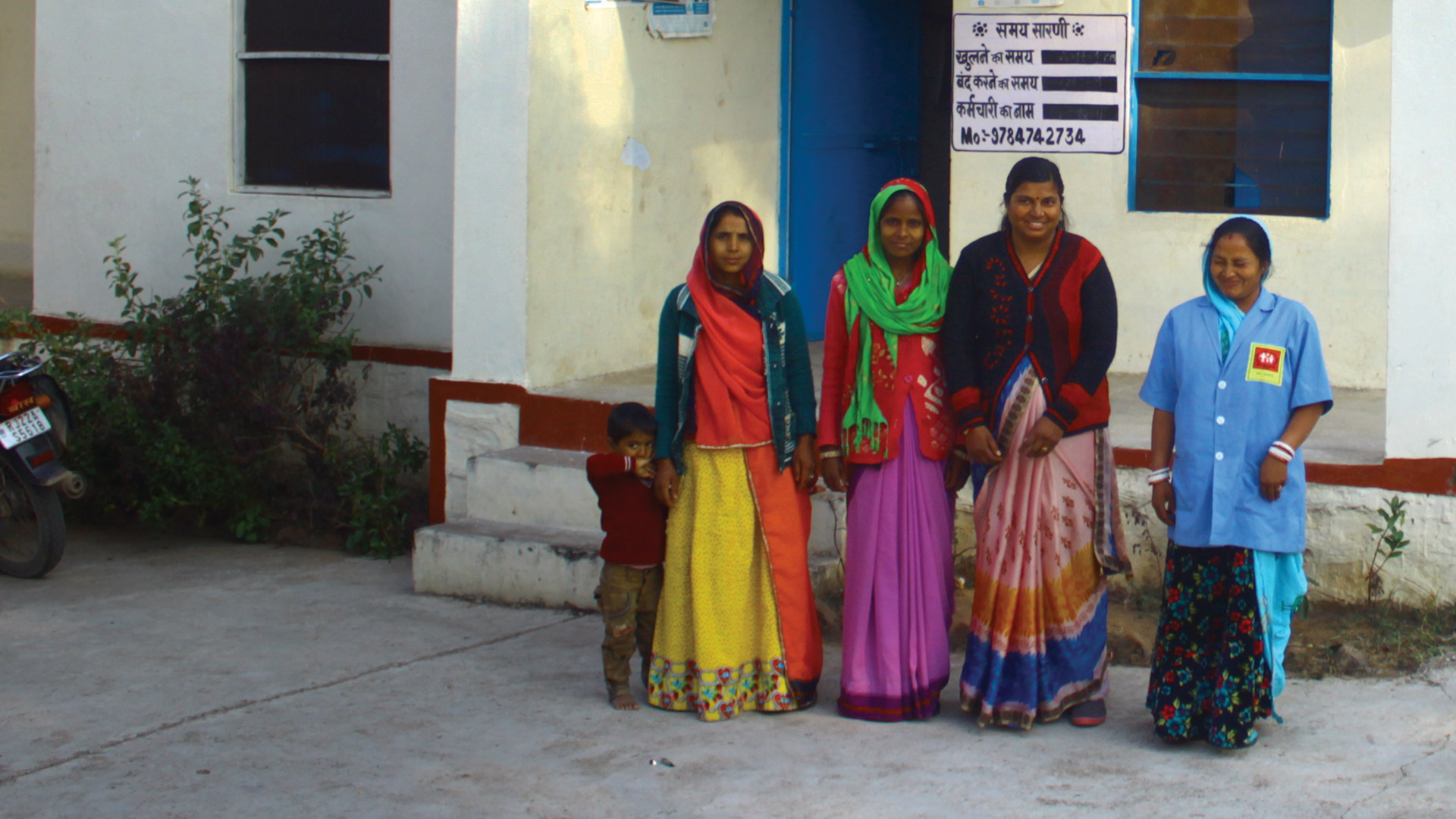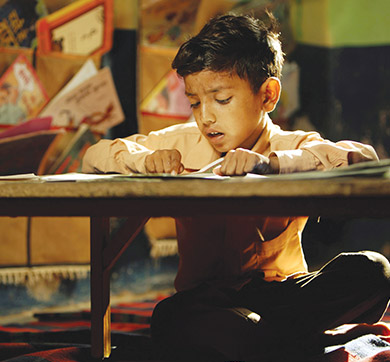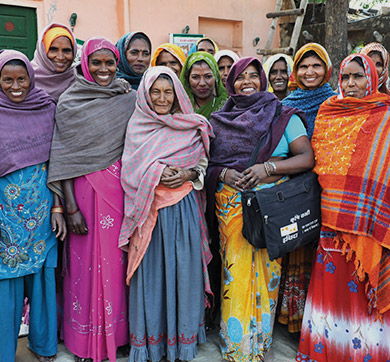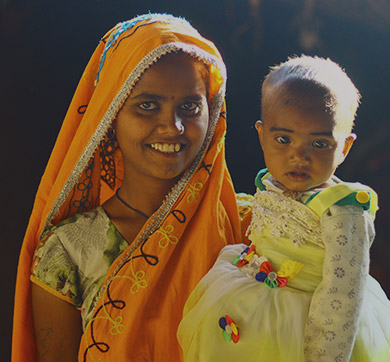June 2020 | 648 words | 3-minute read
Time was when Ankita Devi knew as much about nutrition as she did about nuclear physics. The latter bit remains a mystery for the 26-year-old mother of two from Kakor village in Rajasthan’s Tonk district, but good food and the need for it have become so ingrained in her knowledge bank now that she has made a career of spreading the eating right message.
“When my son was a small child, I used to give him milk and biscuits all day; that’s what he liked and I did not know better,” says Ms Ankita, a ‘suposhan sakhi’ (community mobiliser) in ‘making it happen’, the flagship programme of the Tata Trusts in the nutrition sphere. “I have changed a lot since then, and the change began when I started getting trained, 18 months back, as a sakhi through the PLA (participatory leaning and action) meetings in my village.”
It did not take much for Ms Ankita to be convinced but that was not how it went with the rural women she was tasked with convincing once her training ended. “It was difficult initially to get people to attend the meetings, so I began doing home visits. Participation slowly increased, to the point that these days we have women coming with their children, and we have adolescent and grandmothers as well.”
Building up enthusiasm is par for the nutrition course that has been set and anganwadis (childcare centres) are the critical piece in the effort. These centres, which come under the Indian government’s Integrated Child Development Services programme, are the setting for making it happen, which is being implemented in Rajasthan by The India Nutrition Initiative (TINI), a Tata Trusts initiative.
There are four parts to the anganwadi-centric approach: upgrading the centres to make them beneficial for children and their mothers; training and encouraging the people running them; getting the community involved through a variety of nutrition events; and pulling government officials and institutions into the endeavour.
TINI’s anganwadi initiative is currently operational in Rajasthan, Maharashtra and Andhra Pradesh. In Rajasthan, where the project is being implemented in five districts (Alwar, Dholpur, Karauli, Tonk and Dausa), 205 anganwadis have been refurbished to make them more child and mother friendly and about 12,500 frontline workers from 8,600 of these centres have been trained.
Most importantly, more than 46,000 children — ranging in age from six months to five years — pregnant and lactating mothers, and adolescent girls have gained as a result. The number of those the project has reached out to through advocacy interventions is much higher (about 670,000).
The ’making it happen’ initiative, which kicked off in late 2017 in partnership with the Rajasthan government’s Department of Women and Child Development, has demand- and supply- side components. “We began with the supply side and this was about improving the anganwadis,” says programme manager Shelly Dutta.
TINI took up 100 anganwadis in the first phase of the project and the rest in the second. “We refurbished the centres and provided artwork, books and educational toys to attract the children,” adds Ms Dutta. “Basic facilities were made available and we built up the capacity of the workers running them.”
The training sessions for the anganwadi workers focused on monitoring the growth of children and on counselling pregnant mothers. “The workers and helpers at the centres have done wonderfully well in involving children in meaningful activities,” says Ms Dutta. “The aim was to demonstrate that our anganwadis were no less than a proper playschool.”
Roping in village councils has been a big help. “Many of them have come forward to repair their anganwadis with their own funds,” says Ms Dutta. “We have also tapped self-help groups to spread awareness about the importance of the first 1,000 days in a child’s life. More than 1,900 women leaders from 840 villages have been trained for this. The goal is to ensure the sustainability of the project.”
—Philip Chacko
Source: Tata Trusts' Horizons, April 2020 issue



